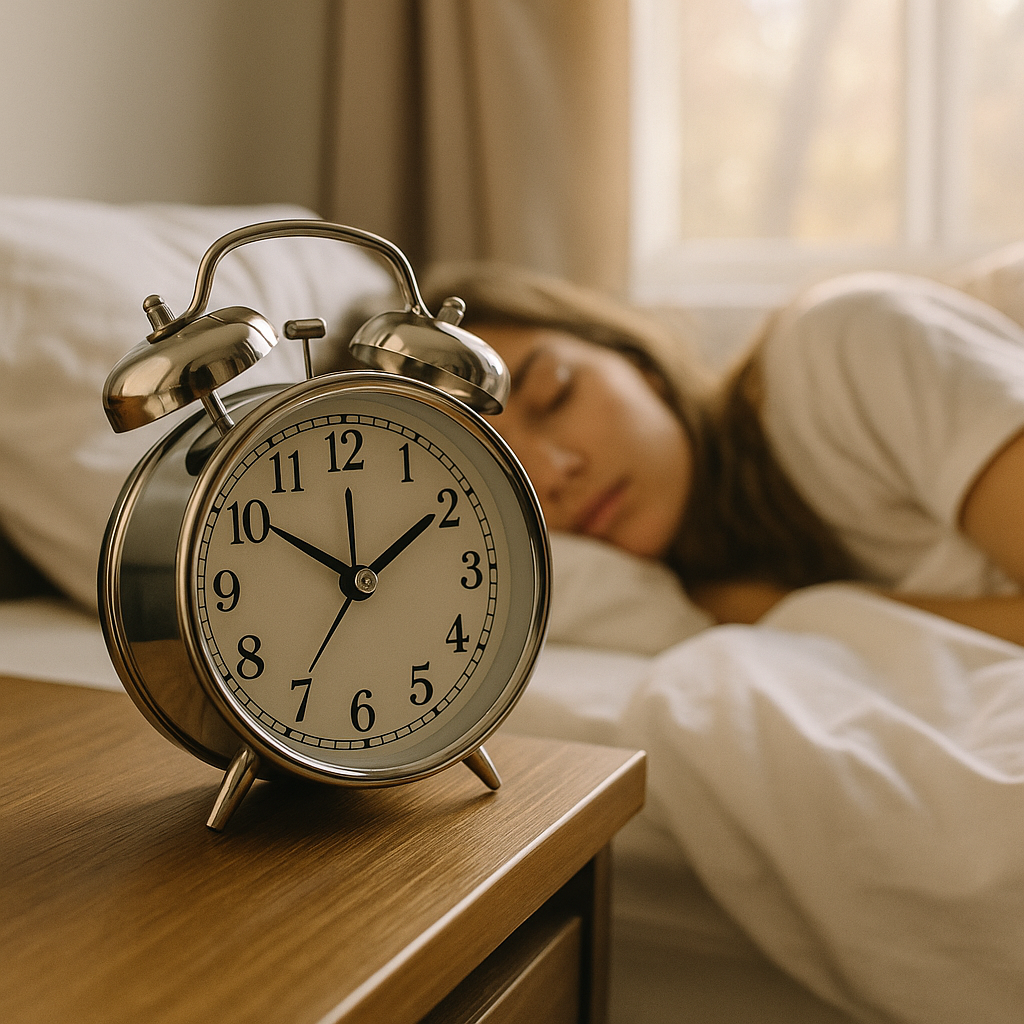Ask Ayurvedic doctor a question and get a consultation online on the problem of your concern in a free or paid mode. More than 2,000 experienced doctors work and wait for your questions on our site and help users to solve their health problems every day.
Best Time to Wake Up in the Morning According to Ayurveda

Ever wonder why some days feel magical the moment you wake up — and others, well, kinda drag along like molasses? Turns out, when you wake up might actually matter more than you think. Especially in Ayurveda, India’s ancient system of natural healing, the best time to wake up in the morning isn’t just about setting an alarm — it’s about syncing with nature’s rhythm. According to this time-tested wisdom, aligning your sleep and wake up time with the cycles of the sun and the energies of the body can improve your health, boost energy, and even your mood.
So what is the best time to wake up in the morning according to Ayurveda? Why does Ayurveda care so much about when you wake up? And how do you even begin waking up early in the morning without wanting to chuck your phone across the room? Let’s dive in.
Why Morning Wake-Up Time Matters in Ayurveda
In Ayurveda, everything is about balance — between mind, body, and nature. The timing of your day plays a huge role in that. Waking up at the right moment helps you harmonize with the natural flow of life. You see, each part of the day is dominated by different types of energy, known as doshas: Vata, Pitta, and Kapha.
According to this philosophy, the best time to wake up isn’t random. It’s linked to these doshic cycles that occur throughout the day. And the earlier you wake up — ideally before sunrise — the better it is for your clarity, digestion, mental focus, and overall vibe.
In fact, many Ayurvedic practitioners agree: the best time to wake up in the morning according to Ayurveda is during the Vata period, which is before 6 a.m. This is when the world is calm, the mind is fresh, and spiritual practices like meditation and yoga are most effective.

Don't wait or self medicate. Start chat with Doctor NOW
What Is the Ideal Wake-Up Time According to Dosha
Ayurveda doesn’t believe in one-size-fits-all. Your personal constitution (prakriti) plays a big role in determining your ideal schedule. But there are still general rules based on the dosha clock that can guide anyone toward a better wake up time.
Vata, Pitta, and Kapha Wake-Up Windows
-
Vata (2 a.m. to 6 a.m.)
Waking up during this time is ideal. The air and space elements dominate, making it easier to rise, think clearly, and move with lightness. This is why many spiritual traditions — not just Ayurveda — suggest early morning practices. -
Kapha (6 a.m. to 10 a.m.)
If you wake up during this window, especially after 7 a.m., you might feel groggy or heavy. Kapha is earthy and slow, which means it’s harder to shake off sleep inertia. Not the best time to wake up if you’re trying to feel energized. -
Pitta (10 a.m. to 2 p.m.)
Not really a wake-up window unless you’ve pulled an all-nighter (not recommended). Pitta time is active, fiery, and focused — great for getting work done, but not ideal for crawling out of bed.
In short: wake up early. The best time to wake up is before 6 a.m., even better if it’s around 4:30 or 5 a.m. — but hey, let’s be real. That sounds impossible when you first hear it. Don’t worry, we’ll talk about practical steps later.
Benefits of Waking Up Early in the Morning
So, what’s the big deal about getting up before sunrise anyway? Is it really worth trading those extra zzz's for a chilly morning breeze and the sound of birds? According to Ayurveda — and honestly, a lot of modern science too — yes, it absolutely is.
Waking up early in the morning, especially during the Vata window (remember, that’s before 6 a.m.), comes with a whole bunch of benefits that go way beyond just being able to say “I wake up early in the morning” with pride.
1. Mental Clarity and Focus
Ever notice how your brain feels less foggy in the morning when you wake up before the world starts buzzing? That’s because the Vata time is airy and light — ideal for clear thoughts, creativity, and reflection. It’s why many successful people swear their most productive hours are before 8 a.m.
2. Improved Digestion and Metabolism
Your digestive fire (known as Agni in Ayurveda) works in tandem with your wake up time. Early risers often experience more consistent hunger cues, better digestion, and even weight balance. When you wake up late, your body’s rhythm gets thrown off — leading to sluggish metabolism and irregular eating.
3. Emotional Stability
Believe it or not, the time to wake up can impact your mood. Sleeping into Kapha time can make you feel lethargic, irritable, or even mildly depressed. But waking with the sunrise tends to boost your natural energy and emotional resilience. It's like a built-in mood stabilizer. Kinda cool, right?
4. Stronger Discipline and Routine
Let’s be honest. Building the habit to wake up early is hard. But once you do it — even just for a week — you’ll likely notice a ripple effect. You feel more in control, more capable. That mental shift can help you build better habits across your whole day. It’s like the first domino.

Best Time to Sleep and Wake Up for Balance
Okay, so we’ve covered the best time to wake up in the morning according to Ayurveda. But let’s not forget the other half of the equation: sleep. Because if you’re going to wake up early, you definitely need to hit the sack earlier too.
Ayurveda suggests that the best time to sleep and wake up follows the natural light-dark cycle. Ideally:
-
Sleep between 9:30 p.m. and 10:30 p.m.
-
Wake up between 4:30 a.m. and 6:00 a.m.
That gives you a solid 7–8 hours of rest, with your body naturally winding down during Kapha time and waking up during Vata. It’s about syncing with the doshic rhythm, not fighting it. The result? Way better energy and mood throughout the day.
Side note: I know this sounds like something your grandma might say — but seriously, try sleeping earlier for a few days. You'll feel a difference. Maybe not huge at first, but noticeable. And yeah, there will be nights you slip up. That’s okay. Ayurveda's not about perfection; it’s about harmony.
Practical Tips to Wake Up Early and Feel Energized
Let’s get real for a sec — knowing the best time to wake up in the morning according to Ayurveda is great, but doing it? That’s a whole other thing. If you’re used to hitting snooze five times and scrolling TikTok until 1 a.m., jumping out of bed at 5 isn’t just “hard” — it feels like torture.
But don’t worry. Changing your wake up time doesn’t have to mean turning your whole life upside-down overnight. Here’s how to do it in a way that actually sticks:
1. Start Small — Like, Really Small
Don’t try to go from waking up at 8 a.m. to 4:30 a.m. in one go. Start by dialing back your wake up time by just 15–30 minutes every few days. Baby steps win.
2. Cut Screen Time Before Bed
Screens — especially phones — mess with your melatonin and make it harder to fall asleep. Try putting your phone down an hour before bed (okay, half an hour if you can’t go cold turkey). Replace it with a book or light stretching.
3. Use a Gentle Alarm
Blasting your brain awake with a foghorn alarm? Not helpful. Try a wake-up light, gentle chimes, or even an alarm that simulates sunrise. It helps your body adjust more naturally to your new wake up time.
4. Keep Your Mornings Simple
The less you have to think when you wake up, the better. Lay out your clothes the night before. Know what your first task is. Have your tea or coffee plan ready. Simplicity = success.
5. Get Some Sun
As soon as you wake up, get natural light on your face. This helps reset your circadian rhythm and tells your body, “Hey, we’re up now!” It really works, even if it's just stepping outside for 5 minutes.
Conclusion
So, what’s the verdict? According to Ayurveda, the best time to wake up in the morning is early — ideally before 6 a.m., during the Vata period when energy is light, subtle, and flowing. It’s a time of clarity, creativity, and calm. Pair that with an earlier bedtime (around 10 p.m.), and you're setting yourself up for balanced energy, better digestion, improved mood, and more focus throughout your day.
Of course, nobody’s perfect. You’ll have days you sleep late or hit snooze 3 times or just can’t. That’s okay. The goal isn’t to punish yourself — it’s to reconnect with a rhythm that your body already knows. The more you listen, the easier it gets.
Give it a try. Experiment for a week. Then see how you feel.
FAQs
How does waking up early affect your health?
Waking up early boosts mental clarity, balances digestion, and aligns your body with natural energy cycles. It can also reduce stress, improve mood, and give you more productive hours in the day.
What if I can’t wake up before sunrise?
No worries. Ayurveda is flexible. If waking before sunrise feels impossible, aim to wake before 6:30 a.m. at least. The key is to gradually shift and avoid waking up during Kapha time (after 7 a.m.), which can cause heaviness and grogginess.
Can Kapha types wake up later than others?
Technically, Kapha types tend to need more motivation to get moving, but they actually benefit most from waking up early. In fact, sleeping in makes Kapha imbalance worse. So even if it’s hard, early rising helps bring balance.
Thanks for reading! 🌿 If you found this helpful, share it with a friend who’s always trying to wake up earlier (but, like, never does). And if you're ready to upgrade your morning game, give these Ayurvedic tips a test run this week.
You might be surprised at how big a difference just one hour can make.

